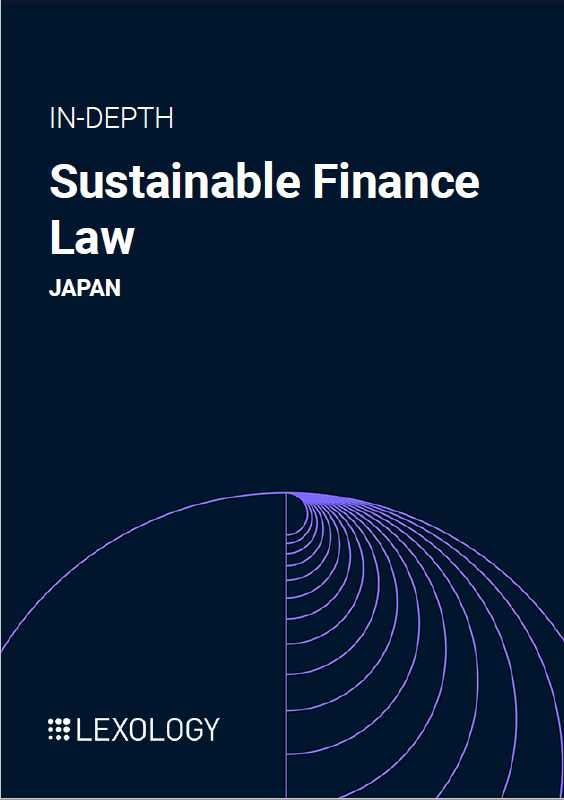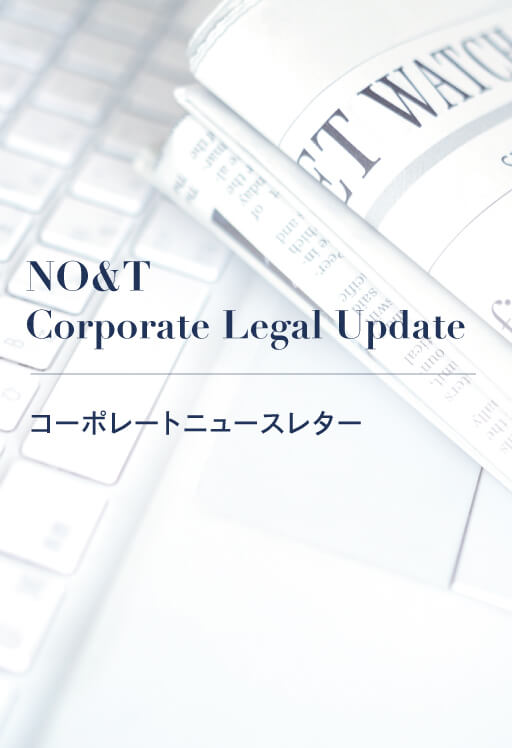
NO&T Japan Legal Update
When it comes to the shareholder activism in Japan, 2021 was a dramatic year: after hostile takeover attempts by third parties, a variety of takeover defense plans (in this article, this type of takeover defense plans are referred to as “contingency poison pills”) were contested in court, and several precedent rulings resulted. 2022 was a somewhat milder year in comparison, but shareholder activism was still one of the central topics in the legal / corporate scenes in Japan.
Adding a new page to the series of judicial decisions in 2022 was the Supreme Court ruling on the contingency poison pill which Mitsuboshi Co, Ltd. (TSE 5820) (“Mitsuboshi”) introduced and exercised against a group of shareholders, including Adage Capital Management.
This is the first case in Japan where a contingency poison pill was introduced against so-called “wolfpack tactics”, in which a group of shareholders (rather than a single shareholder) increase their shares with the joint purpose of making a proposal to the management, without disclosing they are acting in concert. As a result of the court battle, the Supreme Court and the lower courts all ruled in favor of the plaintiffs who sought an injunction of the poison pill defense. The court determined that the plan introduced by the company was unreasonable due to the wide discretion of the company in determining in what “concerted action” consists, and what actions the investors could take to withdraw from such concerted action. In this regard, the decision was largely determined by the specific language of the plan, and further decisions are necessary before a general principle can be drawn. However, this decision will inevitably have an impact on the scope of practical decisions available to Japanese companies under similar circumstances.
Another novelty of Mitsuboshi is that the court approved the injunction despite the fact that the company consulted the independent committee, received approval in a voluntary-held shareholders’ meeting, and also provided a mechanism to mitigate the disadvantage of the investors suffering from exercise of the contingency poison pill. Traditionally, these three factors were considered to be important, if not decisive, in determining the validity of poison pills. Therefore, the new ruling in Mitsuboshi has complicated analysis of how Japanese companies can introduce a legally valid contingency poison pill.
In the shareholders’ meetings held in the period from September 2021 to June 2022, 96 listed companies received shareholder proposals, of which 47 companies (approximately 49%) received proposals submitted by activist shareholders. These figures are the highest ever with a steep rise from 2021, when 65 companies received shareholder proposals, 24 of which from activist shareholders. At present, the circumstances under which proposals by activist shareholders have been accepted in shareholders’ meetings are very limited (although there are some cases where the company proposals were amended such that they substantially reflected the activist proposals), but their presence in the Japanese capital market has steadily increased over the years.
Japanese companies have long held the door firmly shut against approving directors dispatched from activist shareholders, but this robust door is gradually opening. A symbolic example is that Toshiba Corporation (TSE 6502), which is in the process of going private, approved two senior executives of Farallon Capital Management and Elliott Management as its external directors. In this case, the full texts of nomination agreements concluded with these investors have been publicly disclosed in English and Japanese. These events suggest that similar cases are likely to become more common in the future.
Following the increased presence of shareholder activists, poison pills introduced before commencement of hostile takeover attempts by third parties (hereinafter referred to as “non-contingency poison pills”) have come back into the limelight. Indeed, eight companies newly introduced non-contingency poison pill at general shareholders’ meetings in 2022, which is almost double the figure from the previous year. A majority of institutional investors, however, have negative views of or are strongly opposed to non-contingency poison pills, and accordingly, 14 companies discontinued or did not renew their incumbent non-contingency poison pills, so the overall number of companies introducing non-contingency poison pills remains on a slight downward trend.
As described above, 2022 may not have been as dramatic as 2021 with regard to the development of shareholder activism, but over the past few years a clear tendency has emerged. Meanwhile, administrative and legislative movements have also accelerated. In November, 2022, the Ministry of Economy, Trade and Industry (METI) launched a “Study Group on Fair M&A Practices” to examine, among other things, how takeover defense measures should be designed and to what extent they will be allowed. More recently, the Financial Services Agency (FSA) is reportedly contemplating a review of the rules on takeover bids. NO&T will keep a close eye on the future developments in the practice and legislation of this area and update accordingly.
This newsletter is given as general information for reference purposes only and therefore does not constitute our firm’s legal advice. Any opinion stated in this newsletter is a personal view of the author(s) and not our firm’s official view. For any specific matter or legal issue, please do not rely on this newsletter but make sure to consult a legal adviser. We would be delighted to answer your questions, if any.


Chattong Sunthorn-opas, Thunsinee Sungmongkol (Co-author)


Ario Putra Pamungkas


Long Nguyen


Rashmi Grover


Chattong Sunthorn-opas, Thunsinee Sungmongkol (Co-author)


Ario Putra Pamungkas


Rashmi Grover


(December 2024)
Hiromi Hattori, Yuichi Miyashita (Co-author)


Takashi Itokawa, Takahiro Kitagawa (Co-author)


Kenji Utsumi, Masatsura Kadota, Junji Yamanaka (Co-author)


(April 2025)
Akemi Suzuki, Shuichi Nishimura, Kohei Mano (Co-author)


Rashmi Grover


Takashi Itokawa, Takahiro Kitagawa (Co-author)


Kenji Utsumi, Masatsura Kadota, Junji Yamanaka (Co-author)


Rashmi Grover


Wataru Matsumoto, Kyosuke Ohno (Co-author)